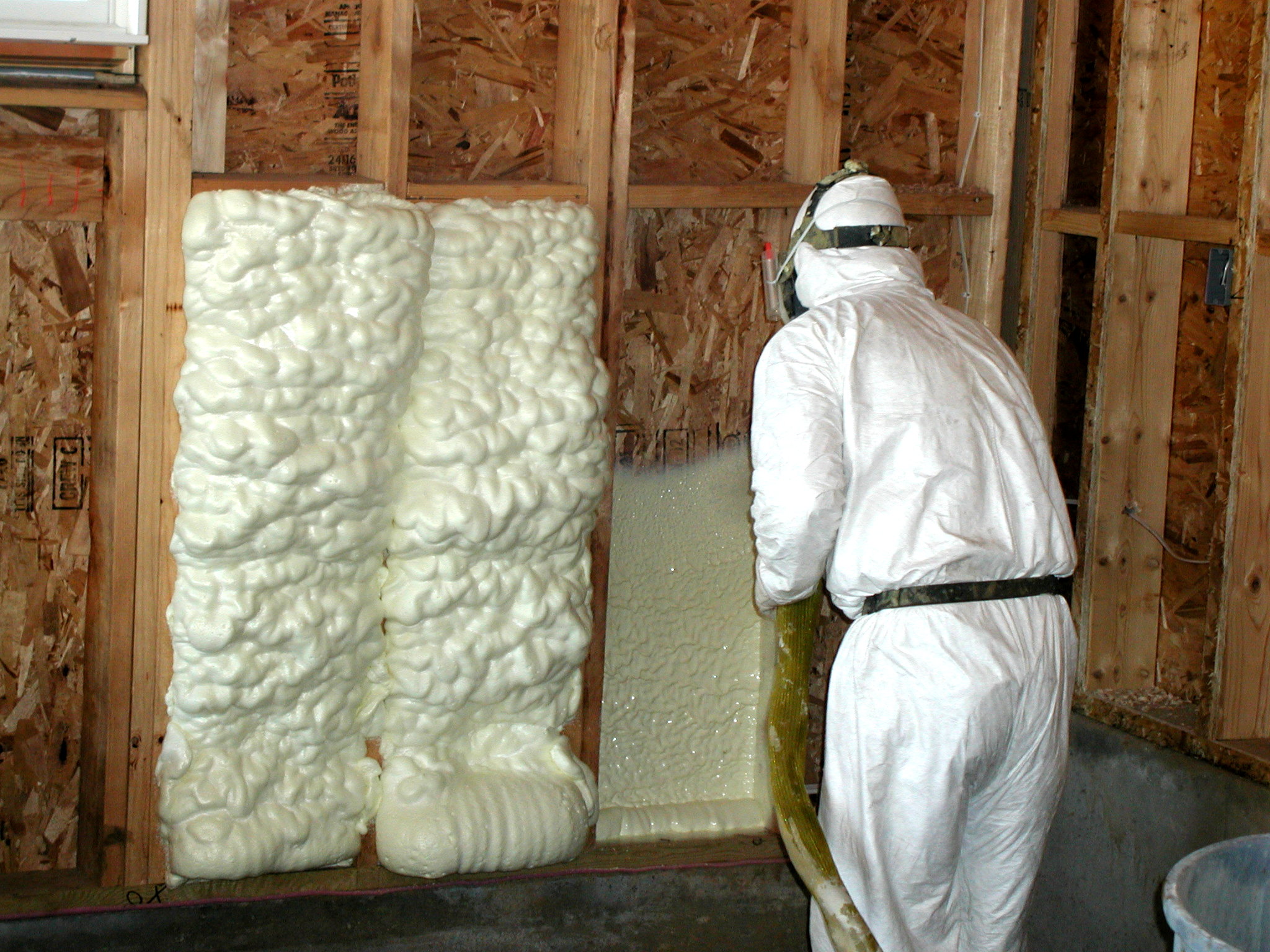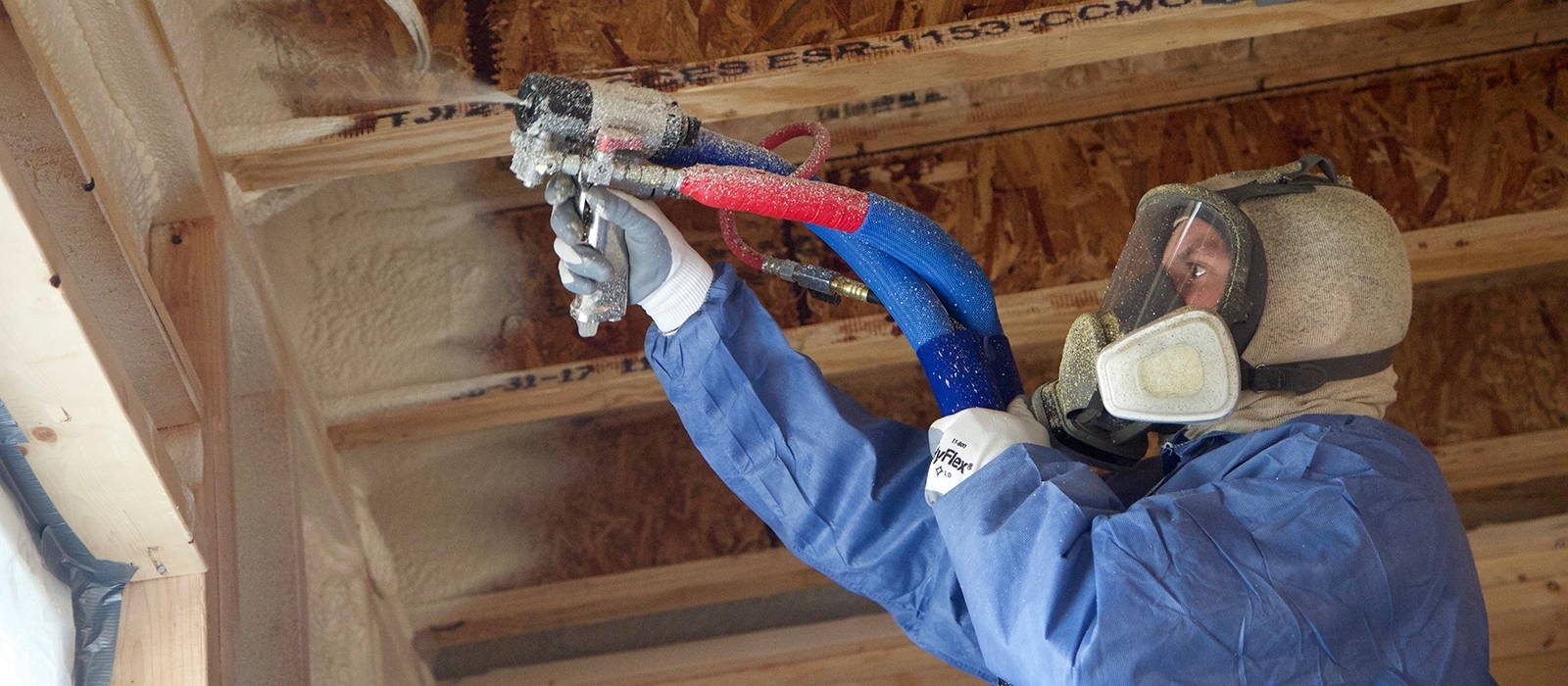Comparing Spray Foam to Conventional Insulation: Which Is Better?
Comparing Spray Foam to Conventional Insulation: Which Is Better?
Blog Article
Exactly How Spray Foam Can Improve Energy Efficiency in Any Structure
Spray foam insulation has emerged as a pivotal remedy for boosting energy performance across numerous building kinds. As building owners progressively seek sustainable solutions, the implications of spray foam insulation prolong past simple energy financial savings.
Recognizing Spray Foam Insulation
Spray foam insulation is increasingly recognized for its exceptional thermal performance and adaptability in numerous applications. Made up largely of polyurethane, this insulation product is used as a fluid that broadens upon get in touch with, filling up spaces and producing a seamless barrier. This distinct property allows spray foam to comply with irregular surfaces, making it a suitable selection for both commercial and domestic frameworks.

Application of spray foam insulation is usually executed by trained experts utilizing customized tools, guaranteeing ideal efficiency and safety and security - Spray Foam. The healing procedure is rapid, enabling quick setup and marginal disturbance. As an outcome, spray foam insulation is increasingly being utilized in new building and construction and retrofitting tasks due to its capacity to enhance architectural stability while boosting total power effectiveness in structures
Benefits of Energy Efficiency
Power effectiveness plays a critical role in lowering operational prices and lessening environmental influence across numerous industries. By optimizing energy usage, homeowners and services can achieve considerable savings on utility costs, which directly improves economic performance. Effective power consumption indicates much less reliance on nonrenewable fuel sources, thereby adding to a reduction in greenhouse gas discharges and advertising a more lasting setting.
Furthermore, energy-efficient structures often experience boosted home worths. As power prices rise and sustainability ends up being a top priority for customers, buildings with enhanced energy effectiveness attributes are much more appealing on the marketplace. This pattern urges investment in energy-saving modern technologies, which can even more drive technology and financial growth.
In enhancement to environmental and financial benefits, energy effectiveness can likewise enhance the total comfort and health of indoor spaces. Correct insulation and efficient heating & cooling systems assist keep constant temperature levels, lowering drafts and moisture levels, which in turn can result in much better indoor air quality.
Inevitably, the advantages of energy effectiveness prolong beyond instant cost savings, cultivating a resilient economic situation, advertising environmental stewardship, and enhancing the lifestyle for owners in any kind of building.
How Spray Foam Works
Typically used as a fluid, spray foam broadens quickly upon contact with surface areas, forming a strong obstacle that properly secures voids and fractures. This special property results from its chemical structure, primarily being composed of polyols and isocyanates, which react when blended to develop a foam that fills gaps and sticks to various products, consisting of timber, steel, and concrete.
When applied, the foam increases to a number of times its original quantity, guaranteeing a tight seal that protects against air leak. This process considerably lowers thermal connecting, which occurs when warmth transfers through products, resulting in power loss. The foam's high R-value, a measure of thermal resistance, adds to improved insulation by reducing warmth transfer in between the interior and outside settings.
Additionally, spray foam is resistant to straight from the source dampness and parasites, even more improving its efficiency in preserving power performance. Its application can be customized to different areas, consisting of attic rooms, wall surfaces, and crawl spaces, enhancing insulation throughout a building. Spray Foam. Generally, the cutting-edge learn the facts here now design and application method of spray foam make it an efficient remedy for improving power performance in any type of framework, leading to lowered power expenses and an extra sustainable constructed atmosphere

Applications in Numerous Structures
Numerous applications of spray foam insulation can be located across different structure types, boosting energy performance and comfort. In property homes, spray foam is typically made use of in attics and wall surfaces to produce a smooth obstacle against air leaks, significantly lowering heating and cooling down demands. This application is especially advantageous in older homes, where typical insulation may be poor.
In industrial buildings, spray foam insulation is used to roofing system systems and exterior wall surfaces, which assists to enhance thermal efficiency and protect against moisture invasion. Its light-weight nature makes it a suitable selection for retrofitting existing frameworks without adding significant weight. In addition, spray foam can be utilized in commercial settings to protect pipes and storage space containers, maintaining temperature control for sensitive materials.
Institutional buildings, such as hospitals and schools, benefit from spray foam insulation by making sure a constant interior climate that supports resident comfort and health and wellness. The adaptability of spray foam permits it to adapt to various building shapes and sizes, making it a recommended choice for architects and building contractors seeking reliable insulation services. Generally, spray foam insulation acts as an important component in accomplishing energy-efficient buildings across all sectors.
Long-Term Expense Financial Savings
Spray foam insulation supplies substantial long-lasting cost savings for structure owners and occupants by reducing power usage and lowering energy expenses. By providing a superior air seal, spray foam decreases the seepage of outdoors air, thus enhancing the thermal performance of a structure. This leads to much more reliable home heating and cooling processes, which can lead to significant reductions in power prices gradually.
Along with prompt cost content savings on utility bills, the resilience and longevity of spray foam insulation add to its economic benefits. Unlike standard insulation products, which might droop, resolve, or wear away, spray foam preserves its effectiveness for decades, decreasing the demand for constant substitutes or repair work. This longevity converts to decrease maintenance prices and much less interruption for owners.
Additionally, structures furnished with spray foam insulation frequently take pleasure in an increase in building value, making them much more enticing to possible buyers or occupants. As power efficiency ends up being significantly prioritized, buildings with effective insulation remedies stand apart in the market. Eventually, the assimilation of spray foam insulation not only improves convenience yet additionally represents a calculated investment that generates significant monetary benefits over the lengthy term.
Verdict
To conclude, spray foam insulation serves as an essential component in improving energy effectiveness across diverse structure kinds. Its capability to produce a seamless barrier versus air leak, integrated with moisture-resistant homes and high r-values, dramatically reduces power intake and connected costs. The implementation of spray foam not just adds to constant interior temperature levels however also increases home value, emphasizing its function as a prudent financial investment for both property and industrial residential properties.
Spray foam insulation has actually emerged as a critical service for improving power performance throughout numerous building types. Spray Foam. As a result, spray foam insulation is increasingly being used in new construction and retrofitting jobs due to its capability to enhance structural honesty while enhancing overall energy performance in structures
In general, the cutting-edge design and application technique of spray foam make it a reliable service for improving energy effectiveness in any kind of framework, leading to reduced energy expenses and a much more sustainable developed environment.
Many applications of spray foam insulation can be found throughout different building types, boosting power performance and convenience.In verdict, spray foam insulation serves as a crucial component in boosting energy efficiency across diverse structure kinds.
Report this page